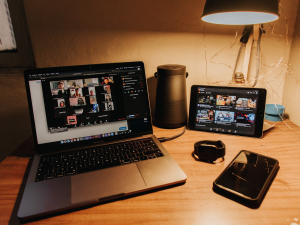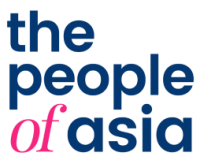The Indonesian House of Representatives is facing a great protest nearing the end of its service, which falls on Monday, September 30th 2019. It is the largest student protest since the 1998 demonstration which brought down its ruling president for 32 years, former President Soeharto. Many issues have triggered the mass protest and it wouldn’t be fair to name only one out of many triggers.
However, it could be said that the media (especially international media) and society highlight the protest upon the Criminal Code draft. It includes criminalising premarital sex (even with both persons’ full consent), time boundary for women not to be out of the house over 10 PM, criminalizing livestock owner whose livestock is running around wildly and more.
Civilians call out for silly and unimportant codes, violation of privacy, dwarfing women’s rights to limiting democracy. Even the most popularly shared demonstrators’ boards are the ones that highlight the “criminalizing consensual premarital sex” part.
Yet the protest was much more than that.
It wasn’t just about the sex.
The protest that finally pushed college students in many cities in Indonesia to “take matters to the streets” (demonstration) actually has seven demands and it covers matters all the way to the farthest east of Indonesia: Papua Island.
It also covers the burning forests in Sumatra and Kalimantan, criminalization of insult to the president (closely linked to Soeharto’s New Order) and to give back the power of Corruption Eradication Commission (KPK) which generates the famous message #ReformasiDikorupsi (translated as Corrupted Reformation).
There are seven demands from the students in which they filed a vote of no confidence after the House of Representatives fails to meet their demands in an audience session.
These are the things you need to know about the demands and the government’s response so far.
1. Reject the Criminal Code bill, mineral mining bill, land bill, correctional procedures bill and labour bill; revoke KPK law and Natural Resources Law; pass sexual violence bill and domestic workers bill
The Criminal Code draft contains several disturbing articles. If passed, the new Criminal Code can criminalize actions derived from the freedom of speech, LGBT rights, sexual reproduction rights and even homelessness (yes, they will take a fine on a homeless guy or anyone suspected as homeless). It also regulates against insulting the president or vice president and against the legitimate government.
They also urge the President to release Presidential Regulation that will cancel out the recently passed KPK Law. The law strips off KPK’s independence by establishing a supervisory body and converting KPK into a government agency.
As for the sexual violence bill and domestic workers bill, both have been drafted for a long time. Yet, the House of Representatives is still hesitating to pass the bills which, if passed, supposedly will protect sexual violence victims and domestic workers (who are mostly violence victims themselves)
2. Remove problematic KPK leaders chosen by the House of Representatives
On September 2018, the House elected five KPK commissioners. The selection has been controversial from the start as it is judged to have penetrated KPK’s supposedly independent body. The suspicions are confirmed when some of the leaders got involved in corruption cases themselves.
3. Renouncing military and police involvement from occupying civilians position
The overstaffing of military officers have raised the fear that the Indonesian military would (again) experience a dual function, which helped Soeharto maintaining his regime for 32 years.
4. End militarism in Papua and free Papua political prisoner
The military has a strong presence in Papua due to the number of separatist groups in the provinces. The island and its civilians have long been exploited and unjustly treated. A recent investigation revealed a military activity in Nduga regency that can be categorized as human rights violations. There have also been several riots coming from the civilians which were triggered by a racial incident in Surabaya back in August.
5. Stop prosecution on activists
Indonesia Corruption Watch (ICW) released a report in April 2019 which stated that since 1996 to 2019 there had been at least 91 cases of assaults and prosecution of 115 anti-corruption activists.
6. Stop forest fires in Sumatra and Kalimantan
It has been months for some areas in Sumatra and Kalimantan to be battling forest fires. Especially in the dry season, the fire keeps burning and spreading despite government and locals’ efforts to wash it down. It has resulted in the dropping air quality which has affected not only the surrounding area but also neighbouring countries like Malaysia and Singapore. So far, the police have named 249 people and six companies as suspects of starting the fires.
7. Investigate human rights violation
The current (and re-elected) President Joko Widodo has promised on his first campaign that he will resolve past human rights violations in Indonesia, but not much (if not nothing) has been done about it during his service. Victims’ families are relentlessly demanding justice and closure. One of them is through “Kamisan” (“Thursday Commemoration”), a human rights event in commemoration of the 1998 incident.
So far, the government has agreed to delay and review the Criminal Code draft. President Joko Widodo and his staff have also agreed to take into consideration and discuss the Presidential Regulation to cancel KPK’s recently passed revised regulation. As for the forest fires, the government are still working on putting the fires out along with local government and local civilians. As for the rest of the demands, the government are still discussing them.





















